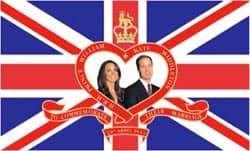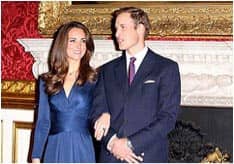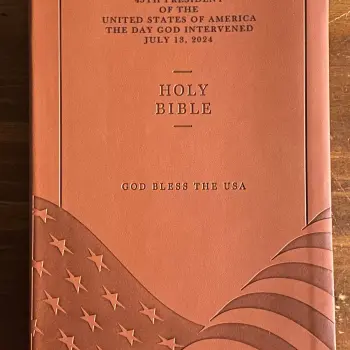 What happens in the Anglican marriage rite?
What happens in the Anglican marriage rite?
The Church of England's marriage service is a traditional Christian ceremony recognizing God's establishment of marriage and involving vows "to love, comfort, honour and protect one another, and, forsaking all others, be faithful to one another as long as they both shall live." Hymns, scripture readings, blessings, the exchange of rings, the Lord's Prayer, and a sermon will be included.
Who will perform the ceremony?
Dr. Rowan Williams, Archbishop of Canterbury, will conduct the marriage ceremony. Since the English Reformation and the Church of England's split from the Roman Catholic Church, the Archbishop of Canterbury is the highest leader of the Church and the symbolic head of the worldwide Anglican Communion, which includes the Episcopal Church in the United States. The Archbishop will be assisted by the Dean of Westminster Abbey, who will officiate, and the Bishop of London, who will give the sermon.
Where will the ceremony be held?
The ceremony will be held at Westminster Abbey, the site of many royal weddings, coronations, and burials. It was first established in the 10th century, and its present structure was completed in the 13th century. It has always had a close association with the royal family, and was the site of the coronation of William the Conqueror in 1066, Queen Elizabeth I in 1953, and thirty-six other royals in the intervening years. (William's parents, Charles and Diana, were married in St. Paul's Cathedral.)
What is the connection between the throne and the Church of England?
When King Henry VIII chose to split with Rome, he passed the 1534 Act of Supremacy, which made the monarch of England the head of the Church of England. When his daughter Elizabeth took the throne, many felt it was inappropriate for a woman to be the head of the Church. Her 1558 Act of Supremacy made her the Supreme Governor of the Church of England. Loyalty to the church and throne were linked.
Why can't Catholics become monarchs?
After the English Civil War (1642-1651), Charles II returned to the throne of England. When he died without an heir, the throne passed to his brother, James II. He had converted to Roman Catholicism, and was widely unpopular due to his promotion of Catholicism. The 1688 Glorious Revolution forced him to flee England, whereupon Parliament offered the throne to William of Hanover, a distant relative, and his wife Mary, James' daughter -- both Protestants. They died without producing an heir, and Mary's sister, Anne, became queen. She too failed to produce an heir. Fear of a return of the civil unrest that had been generated by James II's Catholicism led Parliament to pass the Act of Settlement in 1701. The Act declared that those in the royal line who were Roman Catholic, or who married a Roman Catholic, were barred from the throne.
 What does Kate's confirmation mean? Did she convert?
What does Kate's confirmation mean? Did she convert?
Kate, like many British, was baptized as a child in the Church of England. The Church prescribes a later ritual, called Confirmation, that affords the young adult an opportunity to affirm his or her baptismal vows. Kate had never been confirmed, and she chose to seek this ceremony before she entered into marriage.
What is the monarch's role as head of the church? Does he or she have the power to make theological rulings?
The monarch's role as the Supreme Governor of the Church of England is largely symbolic. He or she may appoint leaders in the church in conjunction with the Prime Minister's counsel.
Is the Church of England the official church of the country? What does that mean? How is the state-church relationship different than the U.S.?
Yes, the Church of England is the established church of England. Nevertheless, the government does not financially support the Church, and membership is voluntary through baptism.
Related Reading from the Patheos Library:
What are the Origins of the Church of England and the Anglican Faith?




